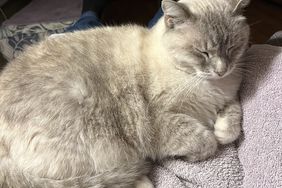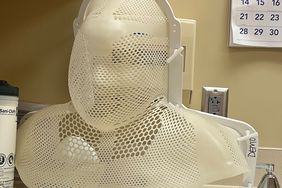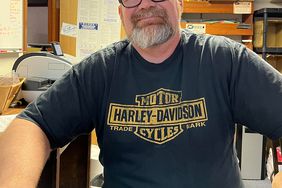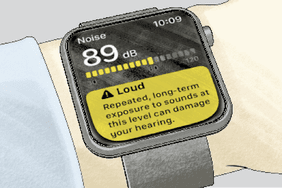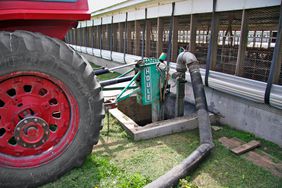:max_bytes(150000):strip_icc()/palliative-a57141d010064a789b1bc8002518c2c9.jpg)
Finding quality, nearby healthcare is a real challenge for rural Americans. According to the National Organization of State Offices of Rural Health, only 9% of all physicians, 10% of psychologists and psychiatrists, and 12% of all pharmacists practice in rural communities. There are only half as many specialists and dentists per 100,000 residents in rural areas compared with urban areas.
Another type of medical care that is hard to come by in rural America is palliative care, which helps people with serious illnesses and their caregivers. Andrew Nelson, host of the Exploring Rural Health podcast from the Rural Health Information Hub (RHIhub), which is supported by the U.S. Department of Health and Human Services, addressed this issue in a recent episode.
He interviewed Karla Weng, senior program manager for Stratis Health, and Pat Custis, director of the Washington State Office of Rural Health, about their work to expand access to palliative care in rural Washington, North Dakota, and Wisconsin.
- READ MORE: Friendship line offers seniors a caring ear
What is palliative care?
"Palliative care really focuses on relieving symptoms, pain, and stress, and can be appropriate at any age and any stage alongside curative care," Weng says. Hospice is one type of palliative care, but anyone with an advanced or serious illness or multiple chronic illnesses can benefit from palliative care.
"There's often a focus on pain and symptom management, psychosocial and spiritual support for both the family and the patient, and a lot of work around care plan continuity," she says. "It provides the information and support to help make decisions on a care plan using the patient's goals and values."
Building a program
Weng says Stratis Health started a rural palliative care project in Minnesota in 2008, and thanks to some recently acquired foundation funding, they are now working with State Offices of Rural Health in Washington, North Dakota, and Wisconsin.
"We've really focused on a community capacity-based approach to helping rural communities develop palliative care services," she says.
- READ MORE: Aging at home on the farm
Rather than giving communities a cookie-cutter plan to follow, the program takes a look at community resources and identifies who in the community has the capacity, passion, and interest in developing services, then developing a coherent plan. She says, "If there's a pool of folks that are trying to make life better, how do you tap into and connect to those resources?"
Weng says palliative care has traditionally been provided in hospitals, but that doesn't necessarily work in rural settings. "They don't have the inpatient volume and they don't have specialists," she says. "So there is a lot of opportunity to have more community-centric care that adds in a layer of palliative support."
- READ MORE: Adult day cares fill the gap
That may mean phone calls to patients, home visits, nursing home care, Meals on Wheels, or other services. "It really isn't as reliant on that inpatient hospital care as the basis of delivery," Weng says. "They might need a clinical consult, but they might also need the chaplain to stop by, or a volunteer to stop by once a week and play cards with them. That makes a huge difference in their overall outlook."
Pets can also make a big difference in a patient's state of mind. Justis says one program in Oregon provides pet care for rural patients, from walking dogs, to clipping toenails, to taking pets to the vet when needed. "This is a tremendous relief for people who are really ill and who are worried about losing one of their best sources of comfort if they are not able to provide that pet care," she says. "There are a lot of non-medical support opportunities where rural communities can flourish."
Care closer to home
"We want people to be able to stay with the people they love and the places they love at a time when they most need that support," Justis says. "So we're trying to help that rural team build the skills to be comfortable." She says that largely focuses on communication skills training for healthcare providers.
"When a care team in a rural community sees someone is suffering, the provider may have an inclination to say, 'We don't have what they need here. I need to send them elsewhere,'" Justis says. "That's the cycle we really want to interrupt by educating providers, clinical teams, and the community that there is another way. You don't have to give up on care just because your aggressive treatment options are slowing down."
The increase of telehealth visit availability is helping. "Telehealth case consults are partially direct clinical assistance with a difficult case, but they're also tremendous teaching opportunities for the local teams to participate with people who have a specialty in palliative care," Justis says. She says caregivers are not only using virtual visits to communicate with far-off specialty teams, but also with the people they're serving, since many of their service areas cover large counties.
"One of the quotes that we use a lot when we talk about this work is from Arthur Ashe, the tennis player, who said, 'Start where you are, use what you have, do what you can,'" Weng says. "I think that really fits our whole approach to establishing rural palliative care services."
Learn more
Listen to the podcast to learn more about the rural palliative care initiatives, funding issues, and how to establish or improve palliative care in your community.
:max_bytes(150000):strip_icc()/LisaFoustPrater-5d5284849acc417c8678324f9c660161.jpg)
